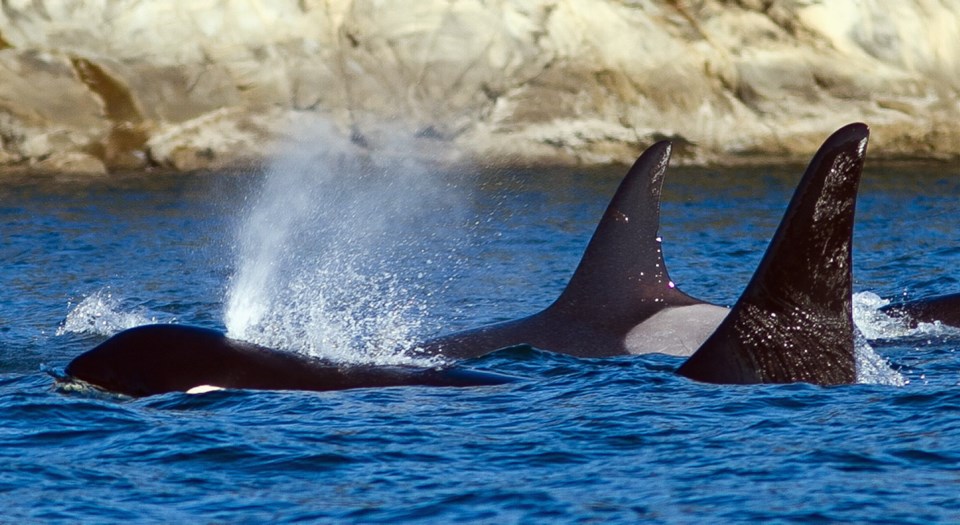Department of Fisheries and Oceans officials will be in Langford for a public meeting today, gathering feedback on a plan to protect and recover endangered southern resident killer whales.
The population of southern residents has dwindled to 75, and the Canadian government is trying to alleviate threats to the whales from underwater noise, contaminants and a shortage of food — namely chinook salmon.
Fisheries officials rolled out a number of conservation measures last year and plan to announce further steps next month as the whales return to the Salish Sea in greater numbers.
Fisheries Minister Jonathan Wilkinson has already unveiled tough new restrictions on fishing for chinook that the fishing industry warns will cost hundreds of jobs and harm coastal communities.
Other measures could include whale “sanctuaries” or no-go zones for vessels in key areas for southern residents.
The government is also considering an expanded vessel slowdown area in Haro Strait to reduce underwater noise, which affects the ability of whales to forage for food.
The Georgia Strait Alliance is calling on the public to support strong measures that will protect the whales.
“What we’re seeing is the government is paying attention, but they need some encouragement to take another step forward,” said Christianne Wilhelmson, executive director.
The proposed moves, if approved, will build on government actions last year, which included:
• closing chinook fishing in three key foraging areas
• imposing a 25 to 35 per cent reduction in the chinook fishery
• introducing a voluntary vessel slowdown in Haro Strait to reduce noise from passing ships
• a new requirement that whale-watching boats and other small vessels stay 200 metres from the orcas — twice the previous distance.
Wilhelmson said the alliance would like to see that distance increase to at least 400 metres for southern residents within their critical habitat.
“What we’re trying to get at it is some quiet for these whales and a lack of disturbance so that they can find the chinook they want to eat and have the ability to catch them,” she said.
Southern residents were the focus of international attention for weeks last summer.
First, an adult female orca, J35, made headlines after carrying her dead calf through the Salish Sea for more than two weeks.
Then, an emaciated three-year-old female orca, J50, became the focus of a joint Canada-U.S. rescue effort, before she disappeared and was presumed dead.
The meeting in Langford will run from 6 to 9 p.m. today at the Westin Bear Mountain Golf Resort and Spa, 1999 Country Club Way.
A second meeting will be held in Sooke on Wednesday from 6 to 9 p.m. at the Prestige Oceanfront Resort, 6929 West Coast Rd. A third meeting will follow in Richmond Thursday.
The consultation period will close on May 3. More details are at the department’s website.



